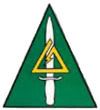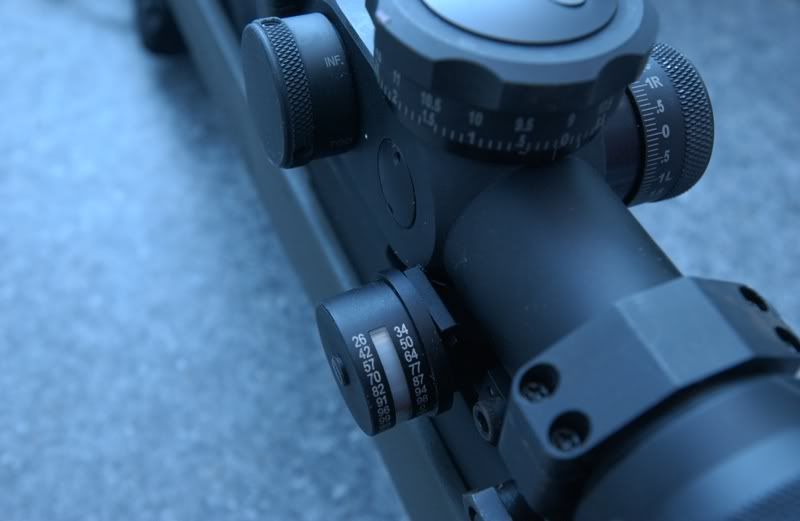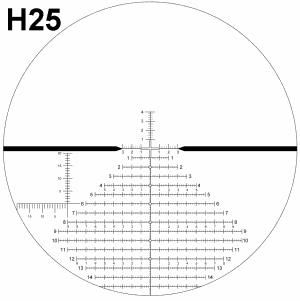FFP Reticles
- Malazan
- Senior Member
- Posts: 119
- Joined: Thu Apr 15, 2010 6:07 pm
- .204 Ruger Guns: Cooper .204
- Location: CO
FFP Reticles
Anyone use an FFP Reticle? If so, how do you like it for Varmint hunting?
Does the reticle cover up too much of the animal, say a PDog?
Does the reticle cover up too much of the animal, say a PDog?

Live Hard
"When the Government fears the People there is Liberty, When the People fear the Government, there is Tyranny." - Thomas Jefferson
- Rick in Oregon
- Moderator
- Posts: 4942
- Joined: Thu Dec 01, 2005 4:20 pm
- .204 Ruger Guns: Sako 75V, Cooper MTV, Kimber 84M, Cust M700 11 Twist
- Location: High Desert of Central Oregon
- Contact:
Re: FFP Reticles
I tried a FFP reticle on a friends rifle during a prairie dog hunt in MT a few years ago. I'll NEVER have a scope so outfitted. At max power, the 450 yard dog was completely obscured by the reticle, even 300 yard dogs were almost oblilterated by the thick crosshairs.
They may be the hot setup for military snipers using a mil dot reticle, but for what we do, no way are FFP scopes the answer to sniping small critters from afar. JMO
They may be the hot setup for military snipers using a mil dot reticle, but for what we do, no way are FFP scopes the answer to sniping small critters from afar. JMO
-
RowdyYates
- Senior Member
- Posts: 266
- Joined: Sat Jan 02, 2010 4:51 pm
- .204 Ruger Guns: Remington LVSF, Cooper M21V, C-Z 527 Kevlar V
Re: FFP Reticles
Pretty much agree with RIO. On a whim, I mounted a 20X (glorified Tasco) Super Sniper with, I assume a FFP, Mil-Dot reticle on a varmint rifle. Will say that, for whatever reason, the images seem to be larger thru that glass than in my other scopes at equal mag. level. But, at least on this model scope, so are the dots. As I shoot mostly large Eastern groundhogs at 400 yards max. with this .22-250, though, that isn't much of an issue; but could see how it could be with smaller varmints at longer ranges.
-
Critter
- Senior Member
- Posts: 195
- Joined: Mon Nov 14, 2005 10:05 pm
- .204 Ruger Guns: Ruger #1B .204, Ruger 77/44,
- Location: Washington State
Re: FFP Reticles
I guess I am the contrarian here. I only use FFP reticles. This is also the system used on most high quality European scopes currently in use by most of the world's military.
The chief advantage is that as you change power the scale on the reticle never changes from reality.
The benefit is that if you can see your impact you can instantly measure the distance from it to the target and make your adjustment using the scale on the reticle or adjust using the similar scale on your knob.
The scope shown below has a mil scale reticle and knobs in mils. So if I see that the impact is off by 2.4 mils because of range or wind, I can immediately dial that adjustment into the scope for a second shot.
For varmint rifles, you need finer reticles. 2FP reticles seem to be courser because of the fixed size function. Custom scopes will allow fine reticles for non-tactical applications. Here is an example of a matrix scale mil reticle with mil knobs.

While this reticle is mainly in mils, it includes a MOA scale at the left for ranging targets of known dimensions in English (inch) units.

The chief advantage is that as you change power the scale on the reticle never changes from reality.
The benefit is that if you can see your impact you can instantly measure the distance from it to the target and make your adjustment using the scale on the reticle or adjust using the similar scale on your knob.
The scope shown below has a mil scale reticle and knobs in mils. So if I see that the impact is off by 2.4 mils because of range or wind, I can immediately dial that adjustment into the scope for a second shot.
For varmint rifles, you need finer reticles. 2FP reticles seem to be courser because of the fixed size function. Custom scopes will allow fine reticles for non-tactical applications. Here is an example of a matrix scale mil reticle with mil knobs.

While this reticle is mainly in mils, it includes a MOA scale at the left for ranging targets of known dimensions in English (inch) units.

- Varoum
- New Member
- Posts: 46
- Joined: Fri Apr 01, 2011 3:54 pm
- .204 Ruger Guns: none
- Location: Montréal, Canada
Re: FFP Reticles
For the scopes available in FFP, there is this one.
http://www.vortexoptics.com/product/vor ... ad-reticle
http://www.vortexoptics.com/product/vor ... ad-reticle
-
albertaal
- New Member
- Posts: 5
- Joined: Wed Feb 03, 2016 8:31 pm
- .204 Ruger Guns: CZ527 Kevlar Varmint factory
Re: FFP Reticles
I own a VORTEX PST 2.5-10 ffp and love it.
It's lightweight with very clear glass, easily adjustable side parallax starts at 10yds.
The illuminated reticle is easy to use as I shot a few coyotes in almost darkness.
Used this scope all winter season firstly on my Volquartsen 17HMR then later in the season I mounted it on a
CZ 527 17REM. which was my go-to calling coyote rifle.
Only issue with this scope like almost ALL Vortex scopes is that the magnification adjustment ring is very stiff to turn.
I sent it to VORTEX and they changed out the grease enhancing the ease of rotating the ring.
My eyes are getting old and I'm getting clumsy but this scope worked great every way.
No complaints about crosshairs covering target areas.
Here is a target paper I shot at the gunrange ...it tracked perfectly between every 2 shots

It's lightweight with very clear glass, easily adjustable side parallax starts at 10yds.
The illuminated reticle is easy to use as I shot a few coyotes in almost darkness.
Used this scope all winter season firstly on my Volquartsen 17HMR then later in the season I mounted it on a
CZ 527 17REM. which was my go-to calling coyote rifle.
Only issue with this scope like almost ALL Vortex scopes is that the magnification adjustment ring is very stiff to turn.
I sent it to VORTEX and they changed out the grease enhancing the ease of rotating the ring.
My eyes are getting old and I'm getting clumsy but this scope worked great every way.
No complaints about crosshairs covering target areas.
Here is a target paper I shot at the gunrange ...it tracked perfectly between every 2 shots

- Sidewinderwa
- Senior Member
- Posts: 648
- Joined: Mon Dec 26, 2005 9:39 am
- .204 Ruger Guns: Savages
- Location: Washington state
Re: FFP Reticles
I also have two Vortex 6-24 FFP scopes. I love them for varmint hunting, especially long range prairie dog shooting. I shoot one part of a hill and the next shot may be over a hundred yards from the last shot. I can easily make adjustments in the scope. The drop charts are good at any magnification level. I do not have a problem with the reticles covering up the target with the Vortex. I particularly like the Christmas tree type reticle in FFP. Check one out before you make a decision FFP vs SFP.

Please, no Sidewinder today!
-
surfclod
- Senior Member
- Posts: 132
- Joined: Mon Feb 19, 2007 2:53 pm
- .204 Ruger Guns: None
- Location: SE Saskatchewan
Re: FFP Reticles
I recently purchased my most costly optical purchase to date.
Was wanting a Varmint/target scope to last a lifetime and in my research I learned about FFP vs SFP. At this time it seems like the FFP is the most popular so I naturally assumed it was somehow superior but after doing my research I learned differently.
For small varmint and target shooting, (what I primarily will be doing) it seemed that the SFP is the best system for me.
80% of the time I will be shooting a live target the size of a soda can. With a flat shooting cartridge out to a reasonable maximum range of 400-500 yards, (most shots in the 175-250 range) there is no need to calculate more than a few inches of elevation or windage.
15% of the time, at the range punching paper I want a fine reticle when at the highest magnification setting. (A FFP optic will have the reticle appear "thicker" the more magnification is selected). So a very fine reticle in a FFP scope would work but this is a problem for the last 5% of the time I will use the scope.
When predator hunting/calling, I have the scope at the lowest magnification setting for an quick shot at close range (under 100 yards). The very fine reticle on a FFP that worked okay at higher magnification is now super fine and hard to place on target in a hurry.
With that in mind I purchased a SFP optic for my varmint rifle, knowing full well that it was not nearly as "tacticool".
However I plan to mitigate that by growing a "tactical beard".
.........so far I am not at the Chris Costa level............ (I seem to be stuck at pubescent jihadist).
But in a few months time, (when the ground squirrels at up), I am confident that my well cared for "tactical beard" will more than make up for any tactical disadvantage of my Second Focal Plane optic.
Was wanting a Varmint/target scope to last a lifetime and in my research I learned about FFP vs SFP. At this time it seems like the FFP is the most popular so I naturally assumed it was somehow superior but after doing my research I learned differently.
For small varmint and target shooting, (what I primarily will be doing) it seemed that the SFP is the best system for me.
80% of the time I will be shooting a live target the size of a soda can. With a flat shooting cartridge out to a reasonable maximum range of 400-500 yards, (most shots in the 175-250 range) there is no need to calculate more than a few inches of elevation or windage.
15% of the time, at the range punching paper I want a fine reticle when at the highest magnification setting. (A FFP optic will have the reticle appear "thicker" the more magnification is selected). So a very fine reticle in a FFP scope would work but this is a problem for the last 5% of the time I will use the scope.
When predator hunting/calling, I have the scope at the lowest magnification setting for an quick shot at close range (under 100 yards). The very fine reticle on a FFP that worked okay at higher magnification is now super fine and hard to place on target in a hurry.
With that in mind I purchased a SFP optic for my varmint rifle, knowing full well that it was not nearly as "tacticool".
However I plan to mitigate that by growing a "tactical beard".
.........so far I am not at the Chris Costa level............ (I seem to be stuck at pubescent jihadist).
But in a few months time, (when the ground squirrels at up), I am confident that my well cared for "tactical beard" will more than make up for any tactical disadvantage of my Second Focal Plane optic.
- TEXAS222
- Senior Member
- Posts: 291
- Joined: Sun Oct 19, 2014 8:09 pm
- .204 Ruger Guns: custom build AR 15-Rem 700 .204 VARMINT- .204 Kimber Pro Var
- Location: Southeast Texas
Re: FFP Reticles
Well, I guess that's why they make both. I bought 2 FFP's kept them 1 month and took a loss but ditched them both. Me personally, if the FFP were cheaper, I would not buy one. Just MHFO.
Jim D
Jim D
-
MZ5
- Senior Member
- Posts: 106
- Joined: Sat Oct 13, 2007 2:57 pm
- .204 Ruger Guns: Ruger M77 Hawkeye Predator
- Location: Arizona, USA
Re: FFP Reticles
My experience has been that most shooters prefer what they're used to. That applies both to mils vs minutes, and to SFP vs FFP. I frequently see people expound the virtues of their preference, but very rarely see a decent comparison of where or when each offers functional advantage. The below assumes that the FFP scope has a regularly-marked reticle (mil-dots, 2-MOA hashes, etc.). It is also crucial that the scope's adjustment increments match the markings. Combining a mil-dot reticle with moa adjustment clicks is unforgivably stupid.
Significant instances where FFP has the advantage in a variable-power scope:
-- Quick adjustments for windage or lead, in the field, especially on fast movers like coyotes. Doesn't matter whether you dial or hold, whether you're at low, medium, or high magnification, FFP ALWAYS gives you an accurate mil/moa scale with which to adjust.
-- Multiple targets at multiple ranges, under time pressure (eg. multiple critters, possibly scattering, or you're at a match firing against the clock). FFP allows you to adjust hold-over or hold-off very rapidly regardless of magnification.
Significant instances where SFP has the advantage in a variable-power scope:
-- Shooting at high magnification on very small targets. A FFP reticle can be made to work well here, too, but then it will likely be un-useful at low magnification unless your erector has a very low zoom ratio.
There are other situations, either fairly minor or unusual, where FFP has at least theoretical or potential advantages, but I see these as the majors. I can't honestly think of even any other minor instances where SFP has a functional advantage.
FFP is a bit more expensive to build correctly/accurately, and as many already know, a fixed-power scope makes SFP vs FFP moot.
Basically, then, FFP is functionally superior when flexibility or speed are of high importance. SPF is _generally_ functionally superior at very high mag on very small targets.
Significant instances where FFP has the advantage in a variable-power scope:
-- Quick adjustments for windage or lead, in the field, especially on fast movers like coyotes. Doesn't matter whether you dial or hold, whether you're at low, medium, or high magnification, FFP ALWAYS gives you an accurate mil/moa scale with which to adjust.
-- Multiple targets at multiple ranges, under time pressure (eg. multiple critters, possibly scattering, or you're at a match firing against the clock). FFP allows you to adjust hold-over or hold-off very rapidly regardless of magnification.
Significant instances where SFP has the advantage in a variable-power scope:
-- Shooting at high magnification on very small targets. A FFP reticle can be made to work well here, too, but then it will likely be un-useful at low magnification unless your erector has a very low zoom ratio.
There are other situations, either fairly minor or unusual, where FFP has at least theoretical or potential advantages, but I see these as the majors. I can't honestly think of even any other minor instances where SFP has a functional advantage.
FFP is a bit more expensive to build correctly/accurately, and as many already know, a fixed-power scope makes SFP vs FFP moot.
Basically, then, FFP is functionally superior when flexibility or speed are of high importance. SPF is _generally_ functionally superior at very high mag on very small targets.
-
Fordevr
- Junior Member
- Posts: 61
- Joined: Tue Jul 25, 2017 7:12 am
- .204 Ruger Guns: Tikka T3 Varmint Heavy Barrel SS
Re: FFP Reticles
Love my sightron FFP 6-24x50 with fine 2 moa reticle. I mostly shoot coyotes and it's great. 1inch dot at 400 yards. Love it. Especially not worrying about being on a certain magnification at a certain distance. With my .204 Ruger I always know that:
Cross hairs dead on at 200 yrds.
First 2 moa mark at 300 is just a bit much. That's 6inches instead of 4inches
2nd 2 moa mark is almost dead on at 400 (16 inches at 400 yards.
Works for me
Cross hairs dead on at 200 yrds.
First 2 moa mark at 300 is just a bit much. That's 6inches instead of 4inches
2nd 2 moa mark is almost dead on at 400 (16 inches at 400 yards.
Works for me

- TEXAS222
- Senior Member
- Posts: 291
- Joined: Sun Oct 19, 2014 8:09 pm
- .204 Ruger Guns: custom build AR 15-Rem 700 .204 VARMINT- .204 Kimber Pro Var
- Location: Southeast Texas
Re: FFP Reticles
++++++++What Rio had to say! You'll never see one on one of my rifles even if they were 1/2 the cost!
Jim D
SE Texas
Jim D
SE Texas
- Darkker
- Senior Member
- Posts: 225
- Joined: Tue Jan 03, 2012 3:35 pm
- .204 Ruger Guns: Ruger Predator
- Location: SE Washington
Re: FFP Reticles
Only thing I shoot is FFP.
Weaver's, Primary Arms, had a Bushy.
Weaver's, Primary Arms, had a Bushy.
I'm a firm believer in the theory that if it bleeds, I can kill it.
Re: FFP Reticles
I find this to be an exceptionally useful thread. I favor SFP scopes, though I have flirted with the idea of a FFP scope because of the ranging advantages (but I chickened out for several reasons).
My Nightforce NXS has a mag range of 5.5—22X. It’s “magic” power (where the MOA divisions on the reticle exactly match MOA on the target) is 11X. That is, if a division on the reticle represents 1 MOA, it will represent exactly 1 MOA on a target at exactly 11X, but at no other power.
Am I right to assume that at 5.5X, the distance between the reticle’s 1 MOA divisions would subtend 2 MOA on the target? And if that’s true, at 22X, wouldn’t the reticle’s 1 MOA divisions subtend 0.5 MOA on a target?
If that’s the case, then my SFP scope could be used for accurate range-finding at 2 separate powers (top and bottom) without having to look at the power ring’s numbers.
My Nightforce NXS has a mag range of 5.5—22X. It’s “magic” power (where the MOA divisions on the reticle exactly match MOA on the target) is 11X. That is, if a division on the reticle represents 1 MOA, it will represent exactly 1 MOA on a target at exactly 11X, but at no other power.
Am I right to assume that at 5.5X, the distance between the reticle’s 1 MOA divisions would subtend 2 MOA on the target? And if that’s true, at 22X, wouldn’t the reticle’s 1 MOA divisions subtend 0.5 MOA on a target?
If that’s the case, then my SFP scope could be used for accurate range-finding at 2 separate powers (top and bottom) without having to look at the power ring’s numbers.
-
MZ5
- Senior Member
- Posts: 106
- Joined: Sat Oct 13, 2007 2:57 pm
- .204 Ruger Guns: Ruger M77 Hawkeye Predator
- Location: Arizona, USA
Re: FFP Reticles
Your computations are correct, and the NXS is one of a minority of SFP scopes whose reticle marks are correct at less than maximum magnification. That is handy-ish, if you can't get a FFP scope whose reticle suits your needs. However, there are a couple of things to consider:
Do you have the scope set at exactly 11x? I don't mean on the dial, I mean you e actually measured it very precisely and _know_ it's set correctly. You mentioned ranging, which is a place where a mismatch between markings and reality comes into play.
You have a fairly quick shot to make. Is your magnification at the right setting? Are you sure? Is it set so that a mil is a mil, or so it's 2? Or 1/2? Not hard to check, but you're spending time off-target that you don't need to spend if you have a FFP reticle.
Are you really gonna range with the reticle? Really? If you're considering an NXS, then you have the funds available for a rangefinder. Use that to range, and use the scope to aim.
Preference is preference, and preference is perfectly fine. I encourage everyone to recognize the difference between use-based preference and just plain familiarity.
Do you have the scope set at exactly 11x? I don't mean on the dial, I mean you e actually measured it very precisely and _know_ it's set correctly. You mentioned ranging, which is a place where a mismatch between markings and reality comes into play.
You have a fairly quick shot to make. Is your magnification at the right setting? Are you sure? Is it set so that a mil is a mil, or so it's 2? Or 1/2? Not hard to check, but you're spending time off-target that you don't need to spend if you have a FFP reticle.
Are you really gonna range with the reticle? Really? If you're considering an NXS, then you have the funds available for a rangefinder. Use that to range, and use the scope to aim.
Preference is preference, and preference is perfectly fine. I encourage everyone to recognize the difference between use-based preference and just plain familiarity.
